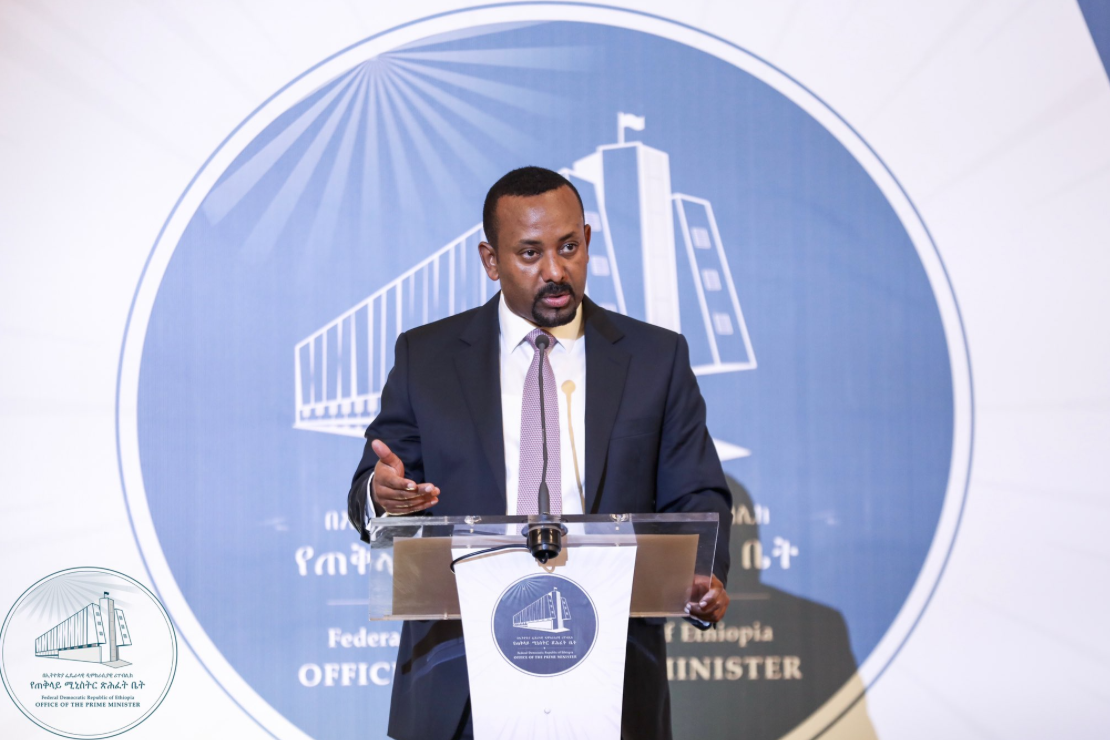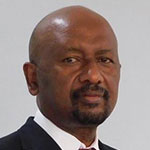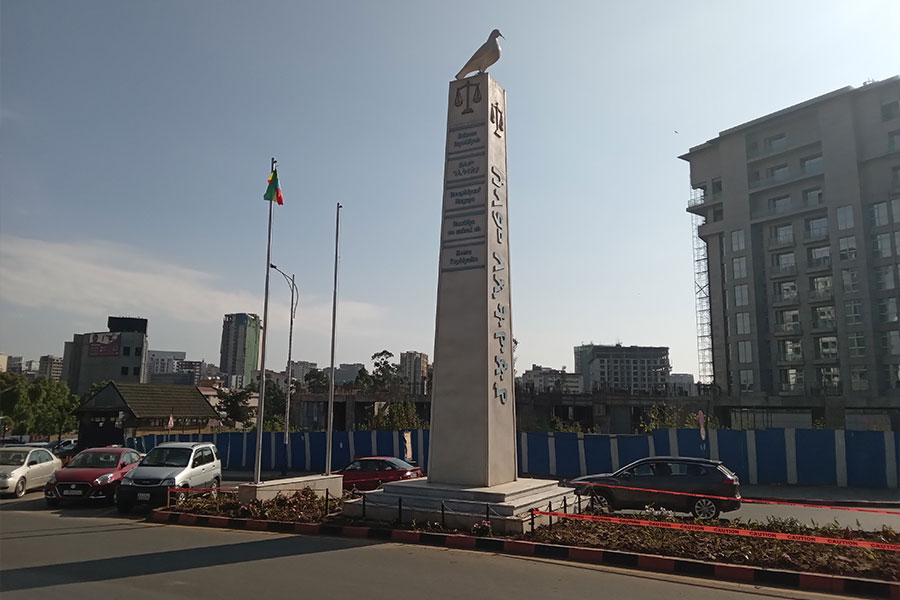
Editorial | Jan 14,2023
Jan 15 , 2022.
Foes and friends of Prime Minister Abiy Ahmed (PhD) agree that his administration is full of surprises. For better or worse, its next step is never too obvious. Ambiguity could be a policy of choice.
Such an analysis has never been as valid as the measures taken by the federal government earlier this month. Although there have been signs that the warring sides are trying to find a way out of the devastating war and appear to be heading to a negotiated political settlement, dropping charges against major opposition figures was a move no less than stunning. Gideon Temotios (PhD), the Justice Minister, announced that charges, amongst others, against Jawar Mohammed, Eskinder Nega, Bekele Gerba and Sibhat Nega et al were dropped. These are political leaders and members representing different sides of the political aisle.
It was a measure that eventually allowed them to walk free. Gideon`s office sees it as a prelude to making a national dialogue more inclusive.
In response to their release, the "public mood" has been a general feeling of confusion and bewilderment. The conspiracy theories fly off the handle with talks of American fixes, shifting alliances and inside jobs. The political pundits are too proud to admit they were unsure of what was happening and ill-informed to shed light on the inner workings that influenced such a decision of consequences.
The most plausible answer could be the simplest one: Addis Abeba’s desire to turn a page in this violent conflict to end the civil war. The past few weeks have been encouraging, although they have not been without setbacks to those pursuing peaceful engagement. The administration's release of political leaders is a bold measure to demonstrate that it is determined to end the war and see through a national dialogue.
Its intentions can also be seen in other frontiers. The rhetoric by senior government officials and the state and affiliated media has come down a notch. Ethiopian Broadcasting Corporation`s (EBS) tagline displayed during its hourly news reports for months has gone from a call for war mobilisation to one that reads, “Let’s develop, build, prepare.” This may sound only marginally better from rhetoric that continues to paint a narrative of grievances. But, the country can use every little bit of de-escalation it can get to change the tide.
No less encouraging have been international efforts at brokering talks between the warring sides. The details remain fuzzy; nonetheless, both Abiy Ahmed’s administration and the TPLF leaders have expressed their desire to negotiate an end to the year-long deadly conflict. They should be encouraged and supported in the early days of a possible peace process by every player who claims to fight for their people. Protracting the conflict longer will rob generations of the potential for economic recovery, dignified life and hope.
The path ahead will not be straightforward, though. Starting a war is easy. Ending it is another matter that requires the courage of leaders on all sides to conflicts. It tests the patience of mediators and requires the re-establishment of trust between warring parties. It can also be protracted with frequent lapses to the frustration of those who want to have normalcy in their life. Even then, it would be an uneasy peace that could be spoiled by blunders unless continually reinforced through dialogue, engagement and positive reinforcement.
The main obstacle on this path could be radical elements in the political spectrum, demanding every last drop of blood from their opponents. They seem to be determined not to settle for compromise but catharsis. The very presence of their opponent irks them unless it stands humiliated and subservient to their might. Such supporters exist on both sides, and it is almost impossible to appease them as their demands are mutually exclusive. They are also not likely to be persuaded to bring the rhetoric down. They have built a strong following precisely because of how radical they are; they are unlikely to allow the influence and power they have accumulated to be taken away from them.
Some steps can be taken to realise a dialogue process and sustain it until a negotiated settlement can be had. It starts with clarity and transparency of the motives and processes of the measures. The way charges were dropped against political figures is a good example of how not to go about it. The news dropped suddenly, with barely a proper explanation of why the charges were lifted and how it would help peace.
It has bred confusion. Worse yet, the method of revelation have allowed the war camp to subvert the narrative for its end of protracting the war. Such measures that appear to come out of nowhere, no matter how good the intention behind them, could inaugurate more political uncertainty and instability. It could have been better managed and communicated.
It is also incomprehensible to secure peace while active conflict continues unabated. Without cessation of hostilities and ceasefire signed, the dead bodies keep piling up, and the discontent between the warring sides hardens more. This pushes the finish line farther, continuing the senseless devastation that has been wrought on millions of people. A cessation of hostilities and unfettered access to humanitarian aid will help the peace process secure a strong foundation. In its absence, it remains susceptible to failure like all the efforts at mediation tried before.
International organisations and bilateral partners can play a significant part beyond supporting a mediation process. Leaders on both sides of the war who want to bring peace can better sell the idea of negotiation and compromise to the public if they can point to tangible benefits of an alternate path to conflict. They can do this best if there is reconstruction taking place. Understandably, development partners will not disburse financing for reconstruction while the war is ongoing.
What is the point of rebuilding civilian infrastructure in conflict areas when they risk being destroyed again?
But suppose the warring sides can commit to a cessation of hostilities, agree to a ceasefire, allow unfettered access to humanitarian aid and resume public services in conflict areas. In that case, development partners can ensure the success of the peace process through expedited reconstruction plans. It may cost billions of dollars, but it is a price to be paid in the cause of peace.
There can be no better argument to make to the public than to point to the tangible results of peace. The contrast to the miserable state of affairs the war camp wants to return to will be too obvious to ignore.
PUBLISHED ON
Jan 15,2022 [ VOL
22 , NO
1133]

Editorial | Jan 14,2023

Fortune News | Mar 23,2019

Radar | May 13,2023

Letter To Editor | Jan 26,2019

Verbatim | Sep 18,2021

Radar |

In-Picture | Sep 29,2024

My Opinion | Jul 15,2023

Fortune News | Jan 19,2024

Fortune News | Aug 10,2019

My Opinion | 131770 Views | Aug 14,2021

My Opinion | 128154 Views | Aug 21,2021

My Opinion | 126099 Views | Sep 10,2021

My Opinion | 123721 Views | Aug 07,2021

Dec 22 , 2024 . By TIZITA SHEWAFERAW
Charged with transforming colossal state-owned enterprises into modern and competitiv...

Aug 18 , 2024 . By AKSAH ITALO
Although predictable Yonas Zerihun's job in the ride-hailing service is not immune to...

Jul 28 , 2024 . By TIZITA SHEWAFERAW
Unhabitual, perhaps too many, Samuel Gebreyohannes, 38, used to occasionally enjoy a couple of beers at breakfast. However, he recently swit...

Jul 13 , 2024 . By AKSAH ITALO
Investors who rely on tractors, trucks, and field vehicles for commuting, transporting commodities, and f...

Jul 6 , 2025 . By BEZAWIT HULUAGER
The federal legislature gave Prime Minister Abiy Ahmed (PhD) what he wanted: a 1.9 tr...

Jul 6 , 2025 . By YITBAREK GETACHEW
In a city rising skyward at breakneck speed, a reckoning has arrived. Authorities in...

Jul 6 , 2025 . By NAHOM AYELE
A landmark directive from the Ministry of Finance signals a paradigm shift in the cou...

Jul 6 , 2025 . By NAHOM AYELE
Awash Bank has announced plans to establish a dedicated investment banking subsidiary...